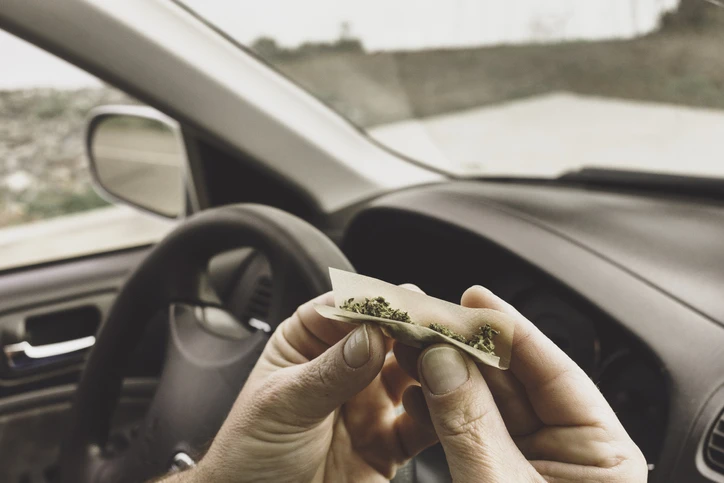While fatal car accidents involving marijuana consumption in the United States have nearly doubled in the past 20 years, smoking weed and driving is still less likely to result in fatal collisions than drunk driving. However, the danger that weed presents shouldn’t be overlooked, as this particular substance alters a driver’s perception of time and speed, along with their ability to maintain attention and make defensive driving decisions based on acquired knowledge.
Let’s take a look at the practice of smoking and driving, along with ways that you can communicate your concerns to loved ones or friends who drive while high.
Marijuana’s Effect on The Body Vs. Alcohol
Imagine you’re a passenger in a car being driven by someone high on marijuana. While they may look and act sober, several important areas of their brain are impaired by the drug. These areas include visual tracking abilities, general visual function, and motor coordination. (A motor coordination example could include the orchestrated movement of braking while rounding a sharp curve.) Complex task completion is also affected–for example, holding a conversation while adjusting the sound system’s volume and switching lanes simultaneously.
Each of these scenarios and others that mimic them become dangerous while driving high.
Alcohol, on the other hand, when exceeding more than roughly four drinks, severely impairs psychomotor function. Psychomotor function encompasses any activity where a person must interpret sensory information that requires a muscular response: stopping at a red light, assessing why a fellow driver is honking, and interpreting the flickering of high beams at night are examples. At the same time, short-term memory, complex tasks, reaction time, focus, hand-eye coordination, and signal interpretation are all compromised.
While both smoking and drinking are hazardous to driving, alcohol proves the deadlier of the two. However, this doesn’t negate the numerous instances where driving high can cause accidents and traumatizing tragedies.
How To Structure Your Talking Points
It’s common for friends and family to refuse to acknowledge their addiction to marijuana. Instead of aiming to cure your loved one of their THC dependence, simply try to have a conversation about the dangers of smoking and driving.
You might start with a question: “Do you know why there’s so much more information on the effects of drinking and driving and fairly little on smoking and driving?” Any variation of this question is interesting, and it’s irrelevant whether you or the participant knows the answer—but it’s good to know that, in essence, it’s difficult to safely test the effects of THC on the road. Once the person responds, sprinkle in these talking points:
- We know that we can measure one alcoholic drink—around 12 ounces of standard beer, five ounces of red or white wine, and 1.5 ounces of liquor—but we still have no clear idea of a standard dose of THC. That means there’s no real way to select a safe amount of weed to consume before driving.
- Drivers under THC’s influence have an increased probability of getting into a fatal collision when compared to sober drivers.
- Weaving and switching between lanes becomes more dangerous on weed.
- Judgment is impaired by THC behind the wheel and in every other situation.
The authorities strongly suggest preventing friends and family from driving high if legally within your power to do so, especially when they’re showing severe signs of THC’s influence: red eyes, slower movements and speech, and general mood changes.
Receive Support For THC Dependence at St. Joseph Institute
Marijuana use disorder is real. It’s characterized by prolonged and consistent use of THC that’s accompanied by withdrawal symptoms when weed isn’t consumed. Withdrawal systems can include insomnia, irritability, and anxiety. If you or a loved one struggles with marijuana use disorder, St. Joseph Institute is here to help when you contact us online or by phone. We have specialists ready to assist you in your preferred way: via telehealth or when physically visiting our convenient location in Port Matilda, Pennsylvania.


